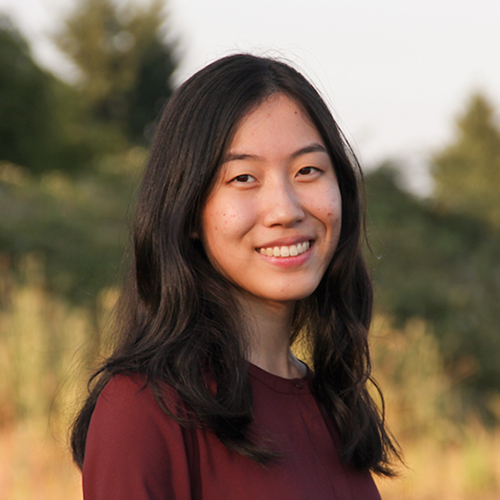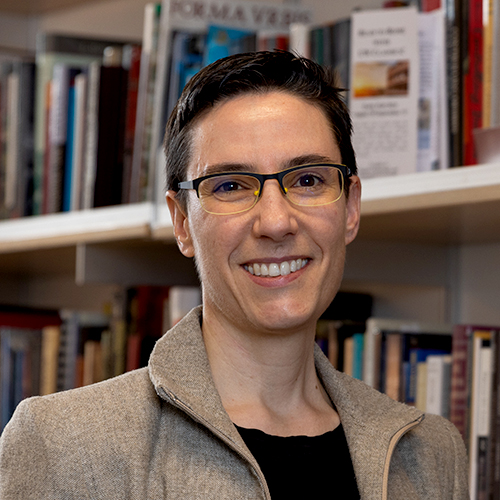Oded Oron (PhD, International Studies, 2018) was a graduate student and journalist in Israel when he witnessed a massive protest in Tel Aviv’s city center in 2014. More than 40,000 asylum-seeking migrants from Eritrea and Sudan had gathered to protest their treatment in Israel. Oron was moved by the event.
“It was one of the most high profile, efficiently coordinated protests in the country’s history, period,” recalls Oron. “It was incredible to watch and witness. I wanted to understand why and how asylum-seeking migrants with no rights or connections were able to coordinate something so remarkable and efficiently run.”

To explore that question, Oron came to the University of Washington, joining the second cohort of a new PhD program in the Jackson School of International Studies in 2014. Oron was drawn to the UW by the expertise of its faculty, especially Jackson School professors Joel Migdal and Kathie Friedman and political science professor Michael McCann. Migdal has extensive knowledge of Israeli history and politics, Friedman is an expert on forced migration, and McCann’s areas of expertise include social movements, protests, and collective action — all topics germane to Oron’s research on asylum seekers in Israel.
Asylum is a fairly new phenomenon in Israel. In the 30 years prior to 2005, the country received approximately 5,000 asylum applications — an average of 170 each year. After 2005 that number skyrocketed, as displaced Eritreans and Sudanese entered through the border between Egypt and Israel. About 64,000 asylum seekers had arrived by 2012.
“It’s something the country was not prepared for in any way,” says Oron. “The immigration authorities were overwhelmed by the sheer numbers, and the government saw the new arrivals as a serious threat to security and stability. Rather than give the asylum seekers a fair chance to plead their asylum requests, the government labeled them as illegal jobseekers, infiltrators, disease carrying, and rapists who were undermining the Jewish state.”
They’ve been through hell and back and made time to share their journey and most intimate experiences with me.
Many of the arrivals settled in Tel Aviv without a real legal status or rights. Some were sent to Israel’s Holot Detention Center (since closed) for at least one year on a rotating basis, despite international laws stating that asylum seekers not be penalized for crossing the border illegally if they identify themselves to the authorities and claim asylum. “It’s something that the majority of asylum seekers in Israel did when they got to Israel, but that was completely disregarded,” says Oron.
Oron admits to strong views on this issue. “In my research methods class and in conversations with researchers I value at the UW, I was told that positionality is fine as long as I’m up-front about it and mark it very clearly in my writing, which I’ve done,” he says. “I also posed my research in the most neutral way possible. I chose a topic I’m very passionate about, but a research question that I can most objectively try to understand.”
To explore that question — how marginalized migrants coordinated a massive protest — Oron returned to Israel for field research, with support from the Stroum Center for Jewish Studies and the UW Center for Human Rights. He interviewed NGO professionals and activists who supported the protest, and more than 35 asylum seekers from the Sudanese and Eritrean communities. He also made 10 trips to Holot Detention Center to speak with dozens of detainees.

“I was humbled by all the people who cooperated,” Oron says. “They’ve been through hell and back and made time to share their journey and most intimate experiences with me. I did not meet anyone who has not experienced some sort of trauma or emotional scars.”
That field research, as well as careful review of legal documents and media coverage related to migrants and asylum in Israel, provided the basis for Oron’s dissertation. In it he explores how mobilization among Israel’s asylum seekers challenges or expands on existing theories about social movements. “As a broad stroke, you have two camps when you study social movements: structuralists who study institutions and the law, and those who look at psychological factors that lead individuals and groups to act,” Oron says. “I tried to see the ping-pong between the two levels of analysis, to demonstrate the dynamic between structure and agency.”
With his PhD now complete, Oron is ready to leave academia. He hasn’t ruled out teaching part-time, but his priority is working hands-on with an NGO or other international organization directly assisting migrants, and advocating and studying migration and asylum issues.
“The world is divided into the haves and have nots, the privileged and unprivileged,” Oron says. “To be forced out of one’s home to embark on a migration journey, whether it is because of natural disaster, climate change, war, extreme poverty, general violence… nobody chooses that. The fact that 80 percent of the world’s forced migrants, about 40 million people, are hosted by ten of the less developed countries of the world shows that we’re doing something very wrong. I’d like to be part of changing that. I continue to be fascinated by the resourcefulness of migrants and their passion to self-organize in demand for rights and protection. “
. . .
You can help UW students like Oded Oron by supporting scholarships and fellowships in the Stroum Center for Jewish Studies and the Center for Human Rights.
More Stories

Two Majors, Complementary Skills
Elizabeth Xiong (2024), a double major in art history and computer science, shares how she gained different and complementary skills from each major.

Lifting Marginalized Voices — from Ancient Rome
"Interesting, frustrating, and necessary,” is how Sarah Levin-Richardson, professor of Classics, describes her research into the lives of enslaved individuals in the ancient world.

The Truth About Public Speaking
Becoming an effective public speaker requires planning and practice. Professor Matt McGarrity and consultants at the UW Center for Speech & Debate are available to help.